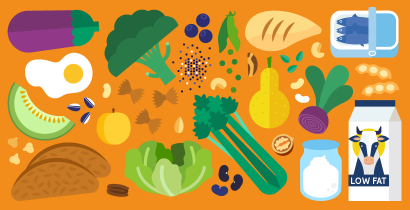Scientific terms

Science is often considered a difficult subject, and scientific terms can come across as tricky or unfamiliar. Sometimes a word means one thing in everyday language but something else in ‘science speak’. Understanding the meanings of scientific terms can help us to avoid generalisations and misunderstandings.
What are dietary reference values (DRVs) used for in nutrition?
16 December 2025Dietary reference values are a set of reference values for nutrient intake which indicate the amount of an individual nutrient that people need for good health.
What is nutrient density?
13 October 2025At a time when diets can easily provide excessive energy without meeting the nutrient recommendations, understanding the composition of foods and concept of nutrient density can be a first step towards improving our diet choices.
Absolute Risk vs. Relative Risk: What’s the difference?
01 October 2025An infographic to help you to understand the difference between absolute risks and relative risks
Difference between correlation and causation (Infographic)
01 October 2025Correlation does not necessarily mean causation! This infographic you help you understand the difference.
Difference Between Hazard and Risk (Infographic)
01 October 2025The words 'hazard' and 'risk' are often incorrectly used as synonyms. This infographic will help you understand the difference between the two.
What Is an Acceptable Daily Intake (ADI)?
01 December 2021The Acceptable Daily Intake (ADI) is an estimate of the amount of a food additive, expressed on a bodyweight basis that can be ingested daily over a lifetime without appreciable risk to health.
Measuring burden of disease: The concept of QALYs and DALYs
01 December 2011Public health interventions aim to reduce the burden of disease and increase the quality of life of populations. But which are the most pressing health problems? Which interventions are most likely to be successful? Do they provide good value for money? Two metrics abbreviated as QALY and DALY, can aid such assessments.






